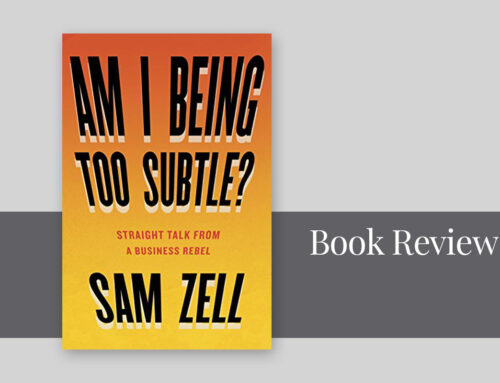I love it when I’m negotiating a deal and someone asks me “let’s just split the difference.” This tells me one of three things: 1) This person is lazy–he wants to get the deal done, collect his commission, and go home. 2) This person is an idiot–he doesn’t understand how to sell the value or negotiate at all. 3) This person is both lazy and stupid.
The premise of this book is that it’s written by an ex-FBI hostage negotiator. There is no such thing as splitting the difference in his line of work. You can’t come home with a half of a hostage.
There are many books written on the subject of negotiation. The most famous one is probably Getting to Yes. If you’ve been to business school, you’ve no doubt read this book as part of the course requirement. However, the problem with that book and I would argue with business school overall, is that it is overly academic and theoretical. Never Split the Difference is more tactical. Yes, we all have a reservation price and it’s not that hard to figure out the BATNA for each negotiating sides, but how the hell do you exactly get the other side to move to what you want? This book presented some great techniques that readers should put into practice.
Try some of these techniques with your loved one. I’ve done it with my wife and I don’t think she has any idea what I’m doing. The most fun is repeating the last three words technique with kids. They will just keep talking and talking with all kinds of self-righteousness.

“How Am I Supposed to do That?”
I love this. So many times the other side might counter with price or terms that just seems crazy. When you ask this question, as Voss puts it, it is “natural and normal, not a request for a fact. It engages because it asks for help.” It keeps the dialogue going, instead of putting up a wall or saying “I can’t do that.” It puts the other party on your side and elicit them to help you figure out the solution to do the deal. Sometimes even they’ll slowly realize how crazy their demands are and relax a little. The question also buys you more time and more information and information is gold in negotiations.
Mirroring
We all know about matching the posture and pace of the other party. Voss adds to turn on your late night DJ voice, and when appropriate, repeat the last three words or so the other person just said. This technique is also so money. It’s asking for more information without actually asking for it. In a typical negotiation, it’s likely the other side knows you’re trying to get more information and will have their guards up. This technique is so natural the other party almost will out of reflex expand on what they just said without you saying “tell me more” or “could you elaborate?” They probably just thought you are daft or they didn’t do a good job explain and voluntarily divulge more information.
Labeling
This relates to the concept of tactical empathy Voss mentions in the book. It is a good way to summarize and clear any road blocks by validating the other side’s emotions. These statements usually begins w/ something like “It seems like…” “It sounds like…” or “It looks like…” When responding they will usually give a longer answer than just yes or no. More info again = gold.
I’ve done something similar before where I will say “What I’m hearing you said is…” or “Are you telling me…” This demonstrates to the other party that I’m actually listening instead of waiting for my turn to speak. It also avoids any kind of confusion to make sure both sides understand what the criteria and talking points are in order to get the deal done quickly.
Quotables
Negotiation… is nothing more than communication with results
You should engage the process with a mindset of discovery. Your goal at the outset is to extract and observe as much information as possible
Negotiation is not an act of battle; it’s a process of discovery
No is the start of the negotiation, not the end of it
We don’t compromise because it’s right; we compromise because it is easy and because it saves face.
Negotiation is coaxing, not overcoming; co-opting, not defeating
Negotiation is often called “the art of letting someone else have your way.”
There’s a lot more great stuff in this book along with some war stories. If you’d like to become a better negotiator I recommend you pick up a copy of this today.


